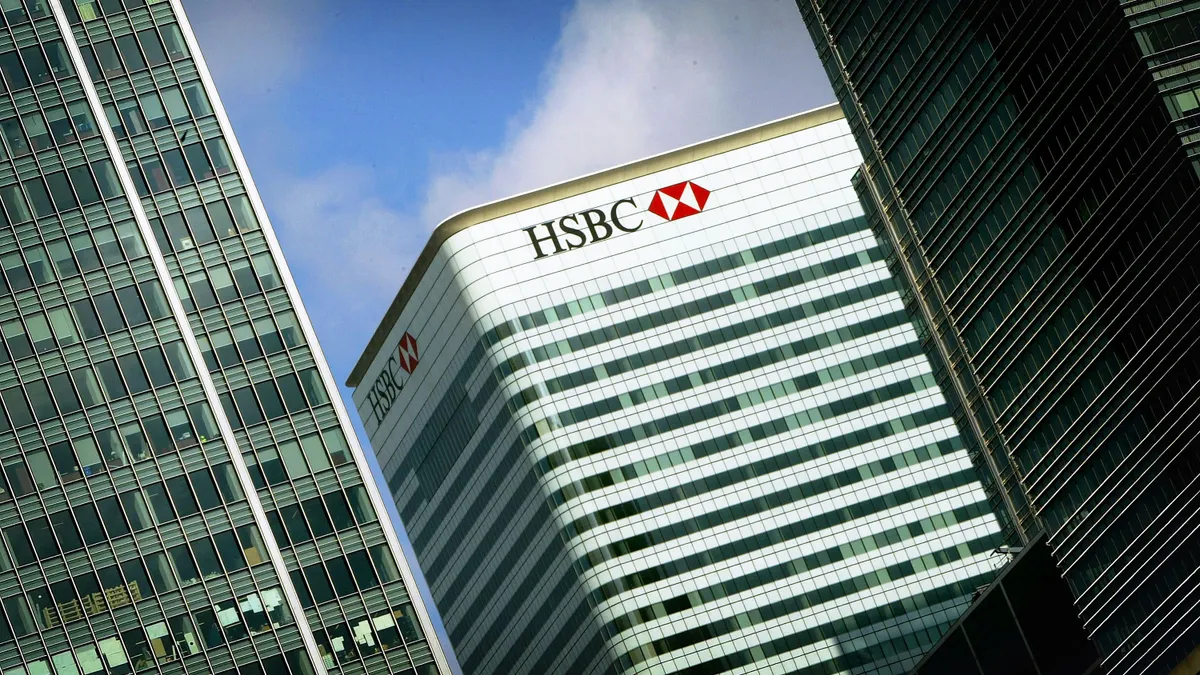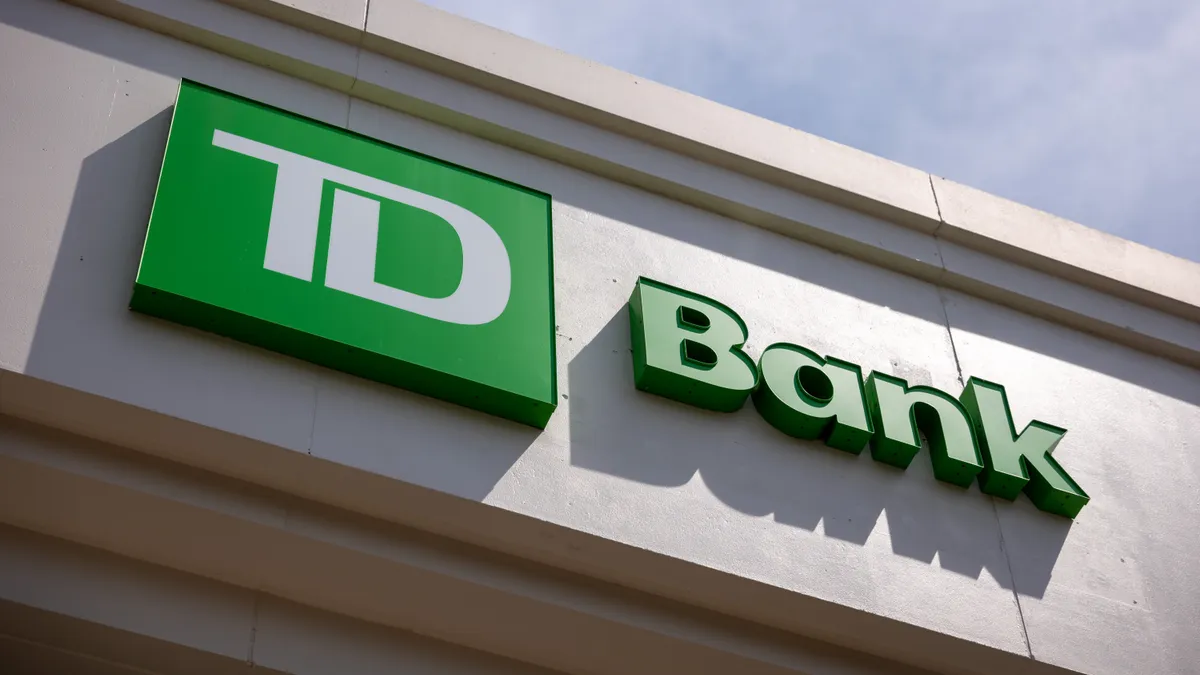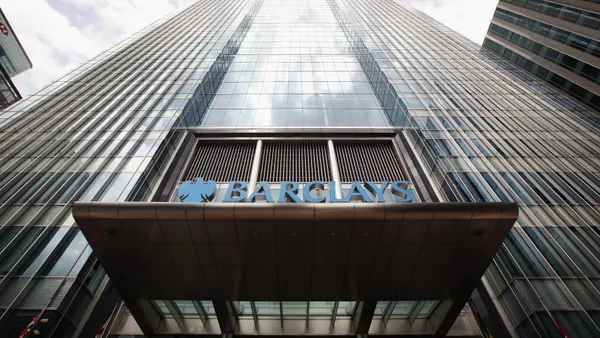There's a certain bluntness or clarity that comes with communication toward the end of the year. Or the beginning of a new one. Call it the "winter filter."
When asked this week which segment of JPMorgan Chase's business would benefit from an acquisition, CEO Jamie Dimon said, "Asset management, my line is open."
Because of its size, JPMorgan is barred by regulators from acquiring a deposit-taking institution. But that doesn't keep Dimon from looking at adjacent businesses. Or bestowing praise on competitors such as Morgan Stanley for their M&A success. And it doesn't put to use any of JPMorgan's excess capital.
"It might be software. It might be fintech ... It might be something overseas," Dimon said. "If you've got brilliant ideas, give me a call. And if you're a competitor investment bank and you bring the idea, you get the fee."
If a year is linear, this may be the point when executives lower the mask for just a moment to see if anyone's still paying attention and drop a head-turner.
Fatigue and restlessness may be understandable after the COVID grind of 2020, when mask wearing became literal.
Southbound
The winter filter isn't always limited to words. Some ideas show that the winter filter is upon us. Goldman Sachs this week reportedly flirted with the thought of moving its asset-management arm to South Florida. Executives have been scouting office locations, chatting with local officials and eyeing tax advantages, sources told Bloomberg — though officially, Goldman's communications department still has its midyear filter on.
"We are executing on the strategy of locating more jobs in high-value locations throughout the U.S., but we have no specific plans to announce at this time," a spokesman for the bank told the wire service in an emailed statement.
The idea that at least some of New York's financial presence would scatter is not new — especially with companies looking to save on real estate that, given social-distancing restrictions, is not nearly at capacity.
Hedge fund Elliott Management announced in October that it would move its main office to West Palm Beach. Deutsche Bank has a footprint in Jacksonville. If Goldman were to uproot its asset-management arm, it wouldn't be the first transplant the bank made out of New York. It already bases staff in Dallas and Salt Lake City.
As recently as 2013, JPMorgan reportedly considered moving its headquarters to South Florida but held back over concerns with the quality of schools there.
"One thing Florida does right is they like business," Dimon told the Greater Miami Chamber of Commerce's Economic Forum in 2013. "They don't act like business is the enemy. In New York, we don't get supported by anyone. It has the highest corporate tax rates and the highest individual tax rates. So you may ask me why don't you come to Miami?"
It should be noted those comments came in February. Winter filter.
In some cases, the winter filter can be employed to make a point — to allow space for ideas whose time has come. It was mid-December last year when Goldman announced it would commit $750 billion in loans, underwriting, advisory services and investments over the next 10 years toward companies and projects focused on renewable energy, sustainable transportation and affordable education.
A month later, the bank said it would no longer take a company public in the U.S. and Europe if it lacks a director who is either female or diverse. The bank doubled down on that demand this week, saying it wants boards to have a second director from an underrepresented background, according to Reuters.
"Escalation draws attention," Catherine Winner, the bank's global head of stewardship, said Wednesday.
Hot-water filter
Some banks — particularly those in hot water in the industry — may shy away from the winter filter.
Wells Fargo CEO Charlie Scharf said Tuesday the bank would roll out new financial reporting metrics in January.
Details? Sparse. Scharf said, "Our internal reporting is getting far, far better … I think that will translate through."
Understandable. Scharf may have had his winter filter on in June when, in announcing his bank's initiative to boost diversity — and to tie executives' pay to their efforts in that regard — he said, "The unfortunate reality is that there is a very limited pool of Black talent to recruit from with this specific experience as our industry does not have enough diversity in most senior roles."
Wells may be quarantining, in a way. Its stock has jumped 37% since October, prompting questions of whether big developments — such as an end to the bank's long Federal Reserve-imposed winter — are on the horizon.
But the bank remained tight-lipped as to the asset cap's fate. "We have to do the work," Scharf said Tuesday. "I can't speak for the regulators. They'll be the ones to determine when the work is done to their satisfaction, but again I can say it's our priority."
Similarly, Citi, another bank in regulatory hot water, didn't assign a dollar figure to the risk overhaul it's undergoing in the wake of the Office of the Comptroller of the Currency's $400 million fine against it. But CFO Mark Mason this week said noninterest expenses would likely be "up a couple percent in 2021 tied to the transformation investments." Midyear filter.
Citi's CEO, Michael Corbat, was more frank last Friday when discussing potential burnout for employees working from home for nine months and counting.
"People talk about the productivity that comes with working remotely," Corbat told Bloomberg. "Well, if I worked seven days a week, 15 to 16 hours a day and I don't take any holidays, at least for a period of time, I'm going to be more productive."
It's unclear whether that's winter filter or soon-to-be-retired filter. Corbat is set to step down in February. Meanwhile, at least two other former executives found their winter form this week.
Kenneth Chenault, American Express's former CEO, in a presumed callback to Scharf's June comments, said company leaders shouldn't blame their inability to promote and hire Black executives on a limited talent pool. "Well, how long have you been in charge?" he said, according to Bloomberg. "Because you're the one who controls what's put into the pipeline. The reality is that, again, if you simply take the position that the status quo approach and processes are the ones that you're going to follow, then you're not going to make progress."
And Gary Cohn, Goldman Sachs's former president — seven weeks after the bank announced its intention to claw back millions of dollars in pay from executives serving at the time of the bank's 1MDB scandal — said through a representative he will "make a significant charitable contribution to Goldman Sachs-sponsored organizations."
Neither the bank nor U.S. authorities accused Cohn of any wrongdoing in the scandal. He left the bank to take a role in the Trump administration.
Cohn didn't indicate how much he's giving, but an anonymous source told the Financial Times it was "in line with what the board asked for." Bloomberg put that figure around $10 million. The gifts, to charities supporting social justice and pandemic relief, may offer Cohn a tax benefit.
"We are pleased that Gary has chosen to support charitable organizations that are doing important work and put this matter behind us," a Goldman Sachs spokesman said.
That's the sound of a bank quietly "taking the L," in midyear fashion.






















